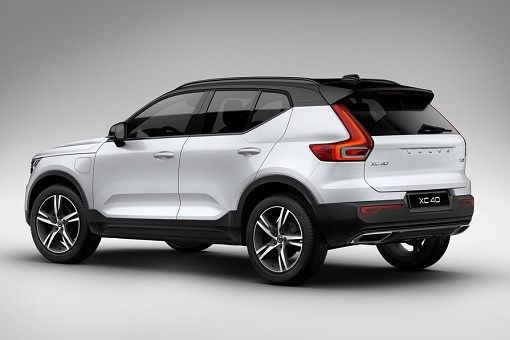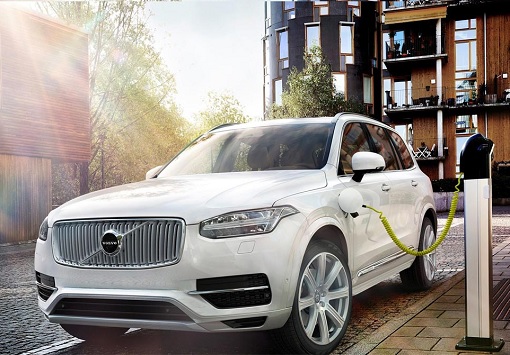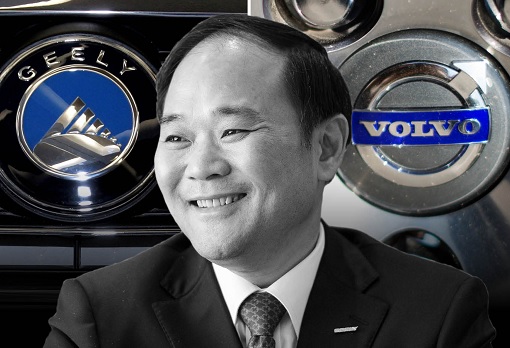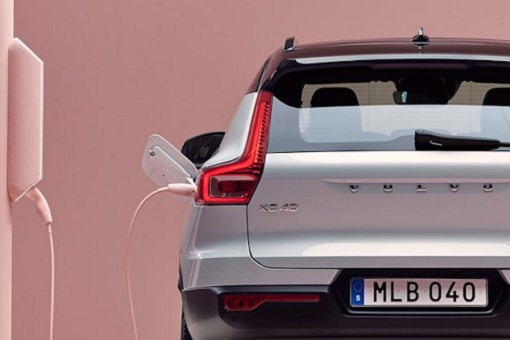Volvo is set to reveal a new electric car today (2 March). The new 40-series compact model – C40 Recharge – will be the Swedish brand’s second electric car after it launched its first fully electric car, the XC40 Recharge EV, last year. The second electric vehicle will be based on the same Compact Modular Architecture (CMA) platform that Volvo and parent firm Geely jointly developed for existing XC40.
But what caught the eyes of everyone was another announcement of Volvo’s plan to stop selling cars that run on fossil fuels by 2030 – for real. That’s not all. In a blow to the traditional model of selling vehicles via independent dealerships, the Chinese-owned carmaker also announced that customers can only buy its electric cars “online”, the same strategy used by Tesla.
As part of the transition, Volvo reveals that by 2025 half of its sales will be electric cars, leaving the other half to hybrids. In essence, four years from now, it will stop selling vehicles powered only by gasoline or diesel. Volvo chief technology officer Henrik Green said – “There is no long-term future for cars with an internal combustion engine.”

Besides being part of a plan to tackle climate crisis, the new strategy was to align itself with the UK’s 2030 ban on internal combustion engine sales. Håkan Samuelsson, the Volvo chief executive, said – “To remain successful, we need profitable growth. So instead of investing in a shrinking business (petrol and diesel cars), we choose to invest in the future – electric and online.”
To be sure, the Volvo isn’t the only brand to abandon fossil fuels. Rivals Jaguar and Bentley have formally revealed the same plan to go fully electric. Under pressure to reduce the CO2 emissions, Jaguar Land Rover announced last month it would go electric by 2025. The luxury car brand Bentley Motors, owned by Germany’s Volkswagen, said on Nov 2020 its range will be fully electric by 2030.
In January, General Motors (GM) became the first U.S. automaker to announce its plan to eliminate gasoline and diesel passenger cars, vans and SUVs (sport utility vehicle) by 2035. GM has said it would invest a whopping US$27 billion in electric vehicles. Ford followed suit when it said in February of its plan to sell only electric passenger cars in Europe by 2030.

In actuality, Volvo had mooted its ambitious plan as early as 2017 when the Swedish iconic carmaker announced that all cars sold will be fully electric or hybrids from 2019 onwards. The plan was to launch five 100% electric car models between 2019 and 2021. Back then, interestingly, Volvo had yet to build a single fully electric car. Obviously, there was a little hiccup.
Volvo, acquired by Zhejiang Geely Holding Group in 2010, was supposed to be merged with the Chinese largest independent automaker. But at the same time, Geely also announced its plan to team up with Chinese search giant Baidu to build electric vehicles, as well as partnership with Chinese social media and gaming giant Tencent to develop autonomous driving technology.
All the uncertainties had contributed to the delays. The merger would free up Volvo from engine development so it could better focus on electric powertrains. Eventually Geely scrapped the merger talks with Volvo about 6 days ago. Instead, both companies will create a standalone powertrain operation to unlock greater efficiencies and streamline research and development.

With the merger off, Geely said the two companies will keep their independent corporate structures, but they will partner on electric and autonomous driving technology. Aside from owning a majority stake in Volvo Cars, Geely owner – billionaire Li Shufu – also owns the British sports car brand Lotus, as well as Malaysian carmaker Proton and British electric taxi and van manufacturer LEVC.
At the moment, Volvo’s push to go fully electric is confined to Europe, where it plans to compete with German automaker Volkswagen – the leader in electric vehicle sales in the region. Tesla, the leader of American electric vehicle, is building its first European factory in Gruenheide, a small town about 33 kilometres south-east of Berlin, which is due to open later this year.
Eventually, electric vehicles are expected to be cheaper to produce than traditional gasoline-powered cars, thanks to fewer moving parts or a reduction in the number of complex systems. CEO Samuelsson expected the cost of manufacturing an electric car to drop to the same level as internal combustion engine cars by 2025, before becoming cheaper in the longer term.

However, a customer who plans to buy a Volvo electric car in 2025 will probably still pay more compared with an equivalent hybrid version because it has yet to reach the economy of scale. Volvo said the strategy to go online sales is part of a broader move to build direct relationships with customers, as well as to promote transparency.
Other Articles That May Interest You …
- Private Jet, Fake Name, Musical Instrument Box – Here’s How Ex-Nissan Hero Carlos Ghosn Escaped Japan
- You’re Fired!! – Nissan Hero Carlos Ghosn’s Financial Scandal Exposes Bad Blood In Renault-Nissan-Mitsubishi Alliance
- If Proton Has The Quality Of Volkswagen Or Toyota, People Will Not Dump The National Cars
- Revealed – This Is How Much Profit Ferrari Makes For Every Sports Car It Sells
- China Geely Introduces Meritocracy – But Handicapped Proton “Bumiputeras” Aren’t Happy
- 80% Cheaper To Take Robo-Taxi – The Next Car You Buy Could Be Your Last
- Finally, Saudi Women Can Drive – Only Because They’re Needed To Boost Economy
- Leading The World – Volvo To Make Only Electric & Hybrid Cars From 2019
- Forget Driverless-Car, Singapore & Dubai Are Racing For “Flying-Taxi”
- Take A Look At 50 Corporations’ Amazing First & Present Logos
- You Kicked Me, I Chewed Your VW Jetta – A Dog’s Sweet Revenge

|
|
March 2nd, 2021 by financetwitter
|


|

|

|

|

|

|




























So how can those favoured useless dealerships of Proton claim gomen help if they are going to be put out of business which is doing nothing but retarding the auto business?
Or has the smart Chinese owners of Volvo and Proton already got the parasites to work for their living – or even better, got rid of those useless monkeys?